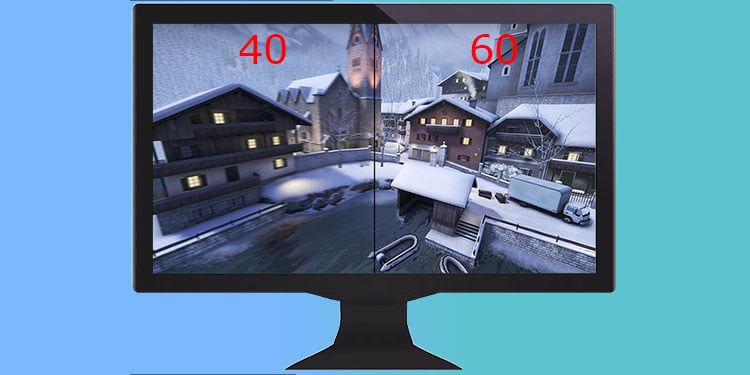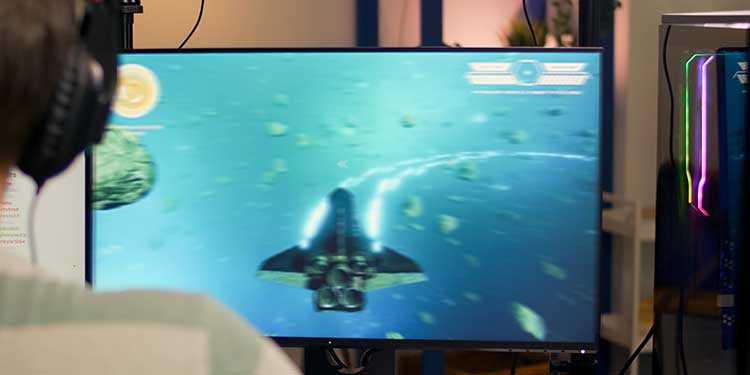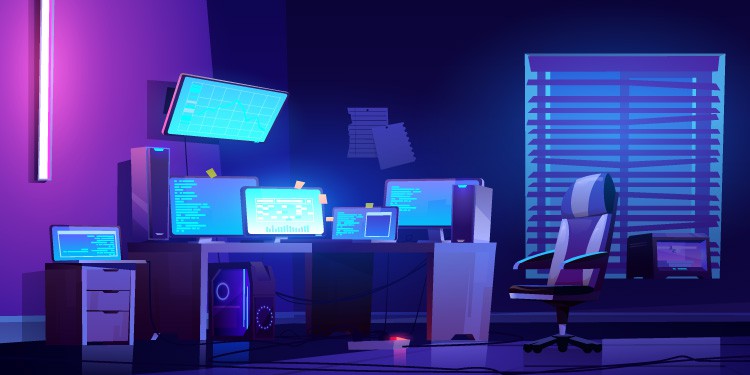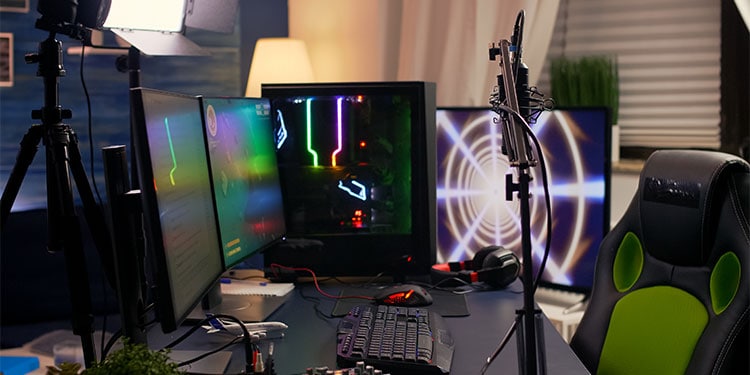We all know that your GPU and CPU are the most important components that determine in-game FPS. However, what about the monitors? Do they actually affect frame rate? The short answer is no, but in many cases, your monitor and FPS can affect each other’s performance. If you have a low-spec monitor, even with a powerful GPU, you can experience stutters, lags or choppy videos. So let’s explore how a monitor affects FPS while considering its individual aspects.
Does Monitor’s Refresh Rate Affect FPS?
The only hardware components that determine FPS are your GPU and CPU. The GPU renders all graphic components and the CPU makes calculations for the change in the image for the next render. That said, your monitor’s refresh rate does force a upper limit to the FPS your PC generates. Refresh rate is the rate at which your screen redraws an image every second. It doesn’t matter how much high frames per second your PC outputs if your monitor can’t display all those frames fast enough. It still doesn’t affect how much frames your computer produces each second, but you won’t be able to see all the frames. Most modern monitors provide high refresh rates, even budget ones, and most also allow overclocking the refresh rate. So, you shouldn’t encounter any issues with with such monitors. In practice, you won’t see any impacts on the apparent FPS even with 60 Hz monitors. Nevertheless, it’s better to aim for 144 Hz, which is the current gold standard for gaming.
Does Monitor’s Response Time Affect FPS?
Most people confuse a monitor’s response time with refresh rate. Response time dictates the time it takes to change a pixel’s color. As we have already established, your monitor can’t affect the FPS your computer generates. And unlike refresh rate, response time has no effect on how much frames you can observe every second. Instead, a higher response time makes images look blurry, especially while showing movements. So, good monitor needs to have lower response time, but it doesn’t affect the FPS your screen displays.
Does Monitor’s Size and Resolution Affect FPS?
Unlike popular belief, monitor size does not matter for FPS. What does matter is the monitor’s resolution. Your screen resolution determines how many pixels a single frame contains. And changing the monitor size does not actually change the pixel count. So, FPS decreases with higher resolution as your computer needs to render more pixels for each frame. However, the screen resolution only affects the overall frame rate if your GPU is not strong enough. If there’s no performance bottleneck, it’s possible to increase resolution without affecting FPS.
Does Having Multiple Monitors Drop FPS?
After reading the above sections, you might have found the answer to this question already. Regardless, the answer is no, having multiple monitors does not affect FPS. All the monitors are simply displaying the frames that your computer produces, so there’s no direct connection to the frame rate. With a low-end GPU and more than 3-4 monitors, the performance might suffer a little. However, with modern hardware the change is so minimal that you won’t notice it at all.
What Other Components Affect FPS?
We have already explained how your GPU, CPU, and screen resolution affect FPS. Apart from these, there are also other components that affect your FPS, such as:
RAM: Your computer uses RAM to store any short-term information. So, you need at least the minimum RAM specified by your game to avoid FPS drops due to bottlenecks. However, having more than necessary RAM does nothing to increase your in-game FPS.Active Tasks: Your CPU’s logical cores handle all the process threads simultaneously. It uses multi-threading technology to spend fractions of a second on a task before moving to another.So, if there are more active tasks, the time between successive threads of your game increases, which directly lowers FPS.Drivers: You need proper drivers to run your hardware components, such as GPU, motherboard and peripherals. Since all these devices are necessary for playing a game, any issues with the driver can hamper game performance and drop FPS.Power Configuration: With power saving features enabled, your CPU and GPU will limit the clock cycles per second. Consequently, they can’t perform their tasks fast enough, which causes FPS drops.Settings maximum performance is a must for getting the best frame rate.Internet Connection: Internet connection does not exactly affect FPS while playing online games. However, if you have connection issues, your positional information may not reach the game server in time, causing you to freeze while the rest of the game moves as usual.This effect is more pronounced in multi-player FPS games where other players will move jerkily on your screen.



